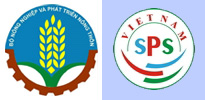World Bank (WB) experts recommend enhancing the medium-term resilience of export commodities to mitigate risks associated with external shocks.
Vietnam's growth is slowing down
According to the recently published economic update report by the World Bank titled "Boosting Growth through Public Investment," Vietnam's economic growth rate has slowed down from 8% in 2022 to 3.7% in the first half of 2023, due to a sharp decline in external demand, coupled with weakening domestic demand.
"The deceleration in growth is caused by a significant drop in external demand, evident through a 12% decrease in export turnover compared to the same period last year in the first six months of 2023. This affects the performance of the export sector, which contributes around 50% to Vietnam's GDP" said Dorsati Madani, Senior Economist at the World Bank, during the report's press conference on August 10th.
She also noted that domestic demand has also stalled due to the low starting point of the post-Covid-19 recovery phase last year and the weakening consumer confidence. Although foreign direct investment (FDI) remains robust, and public investment has slightly increased, the overall growth rate of total social investment has decreased. This is due to a significant reduction in the growth of domestic private sector investment, which dropped to 2.4% compared to the same period, after reaching 11.8% (compared to the same period) in the previous year.
The decline in growth is also reflected from the supply-side perspective, wherein the contributions of various productiSource: World Bank reporton and business sectors to GDP growth have decreased compared to the same period last year.

Source: World Bank report
According to Carolyn Turk, the World Bank's Country Director for Vietnam, the Vietnamese economy is facing challenges from both internal and external factors.
Therefore, to stimulate economic growth, Carolyn Turk suggests that the government could support aggregate demand through effective public investment, thereby creating jobs and stimulating economic activity. In addition to short-term supportive measures, the government should not overlook structural reforms - including those in the energy and banking sectors - as these areas are crucial for long-term growth.
Promoting exports and supporting integration
The World Bank's report forecasts that while Vietnam's economic growth has slowed down, domestic demand is expected to remain the main driver of growth in 2023. Therefore, World Bank experts predict that Vietnam's economic growth will reach 4.7% in 2023, gradually recovering to 5.5% in 2024 and 6.0% in 2025.
The Consumer Price Index (CPI) is expected to slightly increase from an average of 3.1% in 2022 to an average of 3.5% in 2023. The impact of inflation reduction due to decelerated growth and the reduction of the Value Added Tax (VAT) rate from 10% to 8% is expected to be implemented in the latter half of 2023. The CPI is projected to stabilize at 3% in 2024 and 2025, based on the expectation that energy and commodity prices will remain stable in 2024.
World Bank's fiscal policy is anticipated to continue providing some support to the economy in 2023, despite challenges in implementing public investments. The current account is expected to gradually improve, thanks to a mild export recovery, ongoing recovery in international tourism, and sustained remittances.
However, according to Dorsati Madani, in the coming time, Vietnam will face increasing risks both domestically and externally, requiring proactive policy support.
The World Bank's report has proposed several policy options to steer the economy back on track. Regarding exports, the report suggests diversifying products and export destinations to build medium-term recovery capacity against external shocks. Alongside this, enhancing the resilience of export commodities in the medium term is advised to mitigate risks associated with external shocks. Additionally, fully leveraging existing Free Trade Agreements (FTAs) will open up market opportunities, promote exports, and support economic integration with partner countries.
Furthermore, the World Bank recommends that in the medium term, fiscal policy could play a stronger role in promoting sustainable practices and green consumption, contributing to building a sustainable environment. Fiscal policy should be implemented alongside continued monetary policy easing, but the space for further easing is limited. According to the World Bank, reducing interest rates would increase the interest rate differential with global markets and could put pressure on the exchange rate.
Regarding public investment, the World Bank report emphasizes that expediting and improving the efficiency of public investment deployment will help address infrastructure constraints to support growth. Therefore, Vietnam needs to focus intensely on disbursing important national investment programs such as highways, power transmission, and national target programs. Flexibility in budget allocation regulations established in the 2022-2023 Economic Recovery and Development Program should be allowed, as well as some flexibility for early tendering activities before budget allocation.
Source: VCN
Keywords: world bank, export, shock, commodities



















